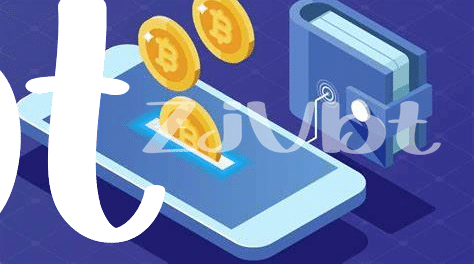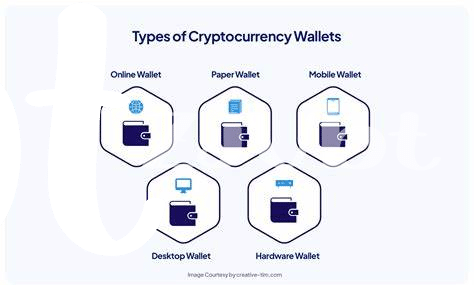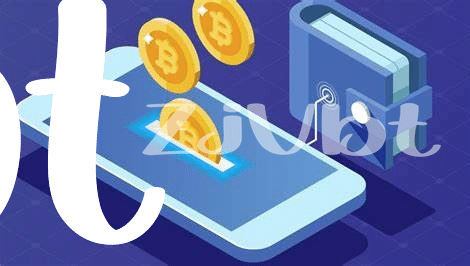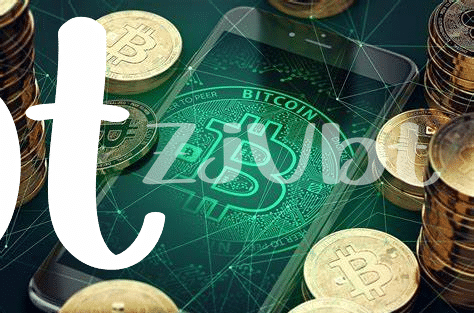🚀 Welcome to the World of Bitcoin Wallets!

Diving into the world of digital currency, specifically Bitcoin, feels like stepping into a whole new universe. It’s a place brimming with possibilities, where you can send and receive money across the globe without the need for a traditional bank. But before you can start your adventure, there’s something very important you’ll need—a Bitcoin wallet. Think of it as your digital pocketbook, not much different from the wallet you carry in your back pocket, but instead of cash and cards, it holds your virtual currency. Just like your physical wallet comes in various shapes and sizes, Bitcoin wallets also vary, each offering unique features to cater to different needs and preferences.
To kickstart your journey, the first step is choosing the right wallet, which requires understanding the basic difference between a hardware wallet (a physical device that stores your Bitcoin) and a software wallet (an app on your device). Here’s a quick rundown to make it easier:
| Type | Description | Pros | Cons |
|---|---|---|---|
| Hardware Wallet | A physical device that securely stores Bitcoin. | High security, less vulnerable to hacking. | Can be expensive, less convenient for quick transactions. |
| Software Wallet | An app installed on your personal device. | Free or low cost, easy to use for daily transactions. | More susceptible to viruses and hacking. |
Choosing the right wallet is a crucial first step, setting the tone for your journey into the world of Bitcoin. 🌐💼 Whether you opt for the rock-solid security of a hardware wallet or the swift convenience of a software wallet, remember, this is your gateway to the exciting and boundless opportunities that Bitcoin has to offer.
🛠 Choosing Your First Wallet: Hardware or Software?
Stepping into the world of Bitcoin for the first time can be like entering a huge digital playground. There’s a lot to explore, but first, you need a safe place to keep your digital gold, which means choosing the right wallet for you. It’s a bit like deciding between a super secure safe for your gold bars (hardware wallet) or a flexible, easy-to-use app for your daily spending (software wallet). Hardware wallets are like vaults, keeping your Bitcoin offline and away from the hands of internet baddies. On the flip side, software wallets are always ready at your fingertips, ideal for buying or sending Bitcoin on the go.
The choice between the two could shape your Bitcoin adventure. If you’re planning to hold onto your Bitcoin as a long-term investment, a hardware wallet’s extra layers of security might be just what you need. However, if you’re excited to trade or use your Bitcoin for day-to-day transactions, a software wallet will make life much easier. It’s all about finding the right balance between security and convenience for your digital treasures. If you’re keen to dive deeper into blockchain’s evolution, from its beginnings with Bitcoin to the innovative world of Ethereum’s smart contracts, take a look here: https://wikicrypto.news/smart-contracts-101-ethereums-innovative-feature. This journey into blockchain could help you make an informed decision on your wallet choice.
🔒 Setting up Your Wallet: a Step-by-step Guide

Alright, diving into setting up your Bitcoin wallet feels like opening a door to a new treasure chest, but with digital coins! First off, pick the type of wallet that suits you best. Imagine a hardware wallet as a super secure, physical vault where your Bitcoin is stored offline. It’s like a secret hideout for your digital gold, safe from online bandits. On the other hand, a software wallet is more like a convenient, digital purse that lives on your computer or smartphone, always ready for action but needing a bit of extra care to keep it secure.
Now, for the actual setup! 🛠 With a few clicks and a sprinkle of patience, you’ll be on your way. Every wallet comes with its own set of instructions, but they all start with downloading the wallet app or software. Think of it as installing a new game or app that’s going to manage your digital currency. Then, you’ll create a new wallet, jotting down a super-secret key (seriously, keep this safe!) that works like a magical password. Finally, follow the prompts to secure your wallet with strong passwords and, if offered, enable extra layers of security like two-factor authentication (2FA). 🎮 Now, you’re all set to start your adventure with Bitcoin – how exciting is that!
🤑 Adding Your First Bitcoin: How and Where

Now that you’ve got your wallet all set up, it’s time to add some bitcoin to it! Think of your bitcoin wallet like a digital piggy bank. First, you’ll need to buy bitcoin from a cryptocurrency exchange – these are special places on the internet where you can exchange your regular money for bitcoins. After signing up and verifying your identity (which is important for safety), you can buy bitcoin using various payment methods like bank transfers or even a credit card. Once you’ve bought your first bitcoins, you’ll transfer them to your wallet’s address. It’s like sending an email, but instead of an email address, you’ll be using your wallet’s unique code. Remember, every transaction you make is recorded, ensuring peace of mind. Dive deeper into the origins and innovations of this fascinating world by checking out who created bitcoin versus ethereum. Now, ready to make your first digital coin addition? It’s not just an exciting step; it’s your entrance ticket into the vast universe of cryptocurrency!
🔑 Keeping Your Wallet Safe: Security 101
Imagine your wallet not just as a place to keep your digital coins but as a treasure chest. In the world of bitcoin, keeping this chest locked and secure is paramount. Think of it like this: just as you wouldn’t leave the keys to your house out in the open, you shouldn’t be lax with the security of your bitcoin wallet. 🛡️ It’s about creating layers of defense against anyone who might want to sneak a peek or take what’s yours. Start with strong, unique passwords – something that isn’t easy to guess like your birthday or, heaven forbid, “password123.” Consider a passphrase, which is essentially a longer password made up of multiple words, making it harder for bad actors to crack.
Two-factor authentication (2FA) is your next layer of armor. It’s like having a double lock on your door. Even if someone figures out your password, they won’t be able to access your wallet without this second verification step, which usually involves a code sent to your mobile device. 📲
Here’s a quick glance at essential steps to secure your bitcoin wallet:
| Security Step | Description |
|---|---|
| Strong Password | Use a complex and unique password for your wallet. |
| 2FA | Enable two-factor authentication for an added layer of security. |
| Backup | Regularly backup your wallet to protect against device failure or loss. |
| Software Updates | Keep your wallet software up to date to protect against vulnerabilities. |
Remember, the goal here isn’t to make accessing your bitcoin a mission impossible for you but to keep unwelcome guests out. And just like you’d periodically check the locks on your doors, always stay informed about new security measures in the bitcoin world. 💼🔐 Keeping your digital treasure safe is a journey, but with these steps, you’re well on your way to becoming a security-savvy bitcoin wallet owner.
🌍 Making Your First Transaction: Exciting Times Ahead!

So, you’ve got your shiny new Bitcoin wallet and you’re ready to dive into the digital currency world. Making your first transaction is a thrilling step, signaling your official entry into the world of cryptocurrencies. Think of it as your digital currency rite of passage. Whether you’re buying a little bit of Bitcoin to hold as an investment or using it to purchase something, the process is straightforward and exciting. Just make sure the address you’re sending to is correct, confirm the amount, and off you go! Your first transaction is not just a transfer of funds; it’s the first of many steps on a new financial journey.
Understanding the broader landscape of digital currencies, including how Bitcoin compares to others like Ethereum, is crucial as you navigate your way through. Interested in exploring more about this dynamic terrain? Dive into what is the future of bitcoin and the blockchain to understand the nuances and future prospects of these leading digital currencies. This knowledge will not only enrich your experience but also equip you with the insight to make informed decisions as you expand your digital currency portfolio. Happy transacting!
